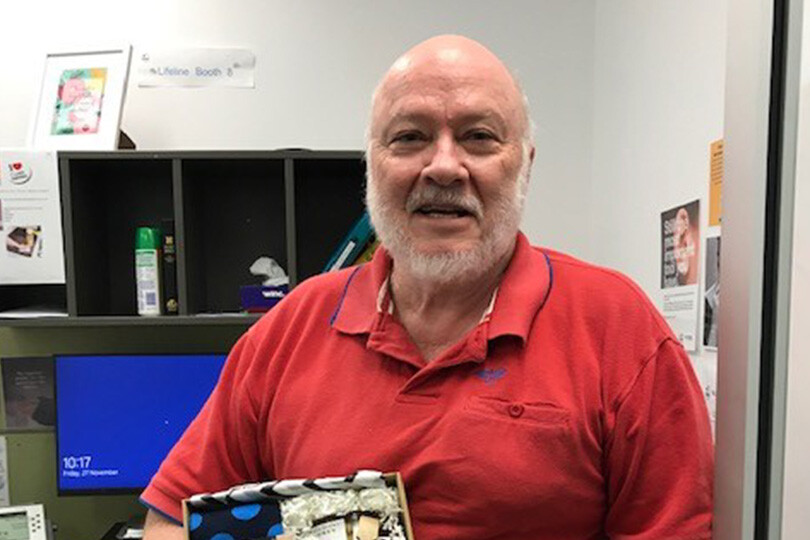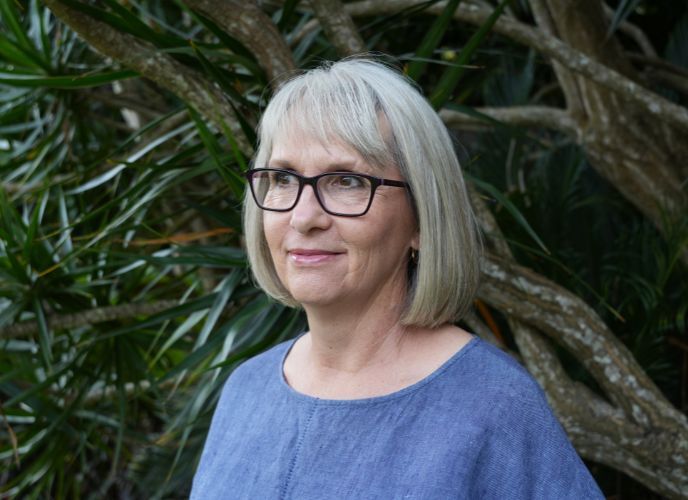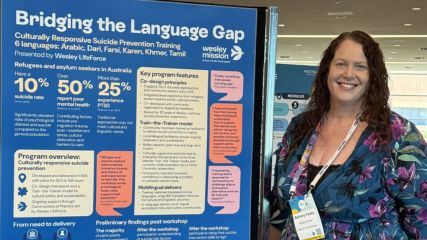Make a meaningful impact on those in need as a Lifeline volunteer crisis supporter.
Support others in times of need

Why become a crisis supporter for Lifeline?
Every day, nine Australians lose their lives to suicide. But you can help us reduce that number by becoming a Lifeline Volunteer Crisis Supporter.
By joining Wesley Mission as a Lifeline volunteer, you’ll answer calls from people in the Sydney and Sutherland areas who are experiencing emotional distress. They may be experiencing suicidal thoughts, self-harm, domestic and family violence, anxiety, substance abuse, isolation or loneliness.
You’ll be part of a community of supportive, caring people who want to be there for others in their darkest moments. It’s an opportunity to make a genuine, life-changing impact on those who need it most, and help reduce the rate of suicide in Australia. As a crisis supporter, you’ll make a difference in people’s lives and enhance your own communication skills at the same time.
.png)
Find a sense of purpose

Embrace personal growth

Join a community

Keep learning
Who can volunteer?
Lifeline volunteer crisis supporters come from a range of different ages, backgrounds and genders. You don’t need any previous training or counselling experience – you just need to be 18 or over and have a genuine desire to help and give back to the community.
You’ll receive full training to prepare for your work with us, with regular ongoing skills development and supervision. You will need to commit to training before you get started – speak to us to find out when training takes place and what your requirements are.
If you’re mature, a good listener, non-judgmental and have a warm and caring nature, we would love to hear from you.

How to apply

Training

Placement

Internship
For up to nine months, you’ll complete 56 hours of logged call experience. During this time you’ll also complete:
- A minimum call coaching session of 90 minutes
- Two group supervision sessions of two hours each
- Three eLearning modules followed by a three hour face-to-face masterclass
- An assessed roleplay
- A final interview.

Ongoing accreditation
Each year you’ll need to complete:
- 92 logged call hours
- 8 hours of professional development (at least four hours face-to-face)
- 4 group supervisions - you can replace one group supervision session with an individual supervision session
- 2 call coaching sessions
What people are saying
-
At first I did find some of the calls confronting. But the compassion I felt for our help-seekers really worked to overpower the intensity of what I was hearing.SueVolunteer Crisis Supporter
-
“In a world that can be scary, it’s an extraordinary privilege to walk alongside someone in their darkest moments and just be present.”LizVolunteer Crisis Supporter at Lifeline Sydney & Sutherland.


